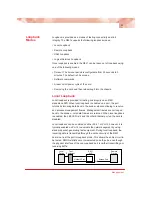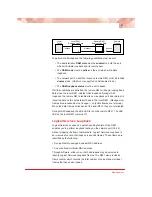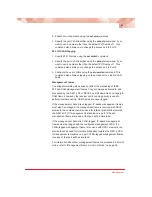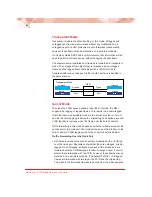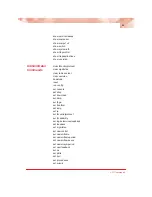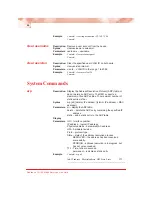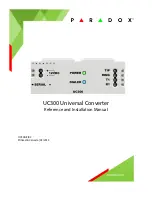
Radiance 10/100 Mbps Services Line Card
44
Transparent Mode
Transparent mode is the default setting. In this mode, all tagged and
untagged user frames are forwarded without any modifications. All
untagged Layer 2 control protocols are also forwarded transparently,
however, these frames may be discarded on a per-protocol basis.
If a frame contains DSCP and/or p-bit elements, that information will be
used to perform internal queuing, without changing the user frame.
The example below illustrates how frames are forwarded in transparent
mode. The untagged frame (light blue) is forwarded as an untagged
frame, and the tagged frame (dark blue) with a VLAN ID of 25 is
forwarded without any changes. Traffic in both directions is handled in
the same manner.
Q-in-Q Mode
To extend the VLAN space available under 802.1Q mode, the R821
supports the tagging of tagged frames. This results in a double-tagged
frame that becomes available for use in the service provider or Q-in-Q
domain. Double tagging preserves the original tag and applies a second
VLAN tag that is removed when the frame exits the Q-in-Q domain.
Traffic forwarding in this mode depends on whether a frame arrives at the
access port or the trunk port. The trunk port serves as the interface to the
Q-in-Q domain. VLAN tagging rules for each port are detailed below.
Traffic Forwarding Over the Trunk Port
•
All frames received at the access port are forwarded with a VLAN tag
over the trunk port. Regardless of whether they are untagged, priority-
tagged or VLAN-tagged, all frames received at the access port are
forwarded with the PVID assigned to them. Untagged Layer 2 control
protocols are forwarded with the PVID, however, these frames may be
discarded on a per-protocol basis. (The default PVID is 1.) All tagged
frames are forwarded with two tags—the PVID and the original tag.
The p-bits in the forwarded frames are derived from the p-bits assigned
R821
Access
Port
Trunk
Port
Transparent Mode
untagged
tagged
untagged
tagged
25
25


